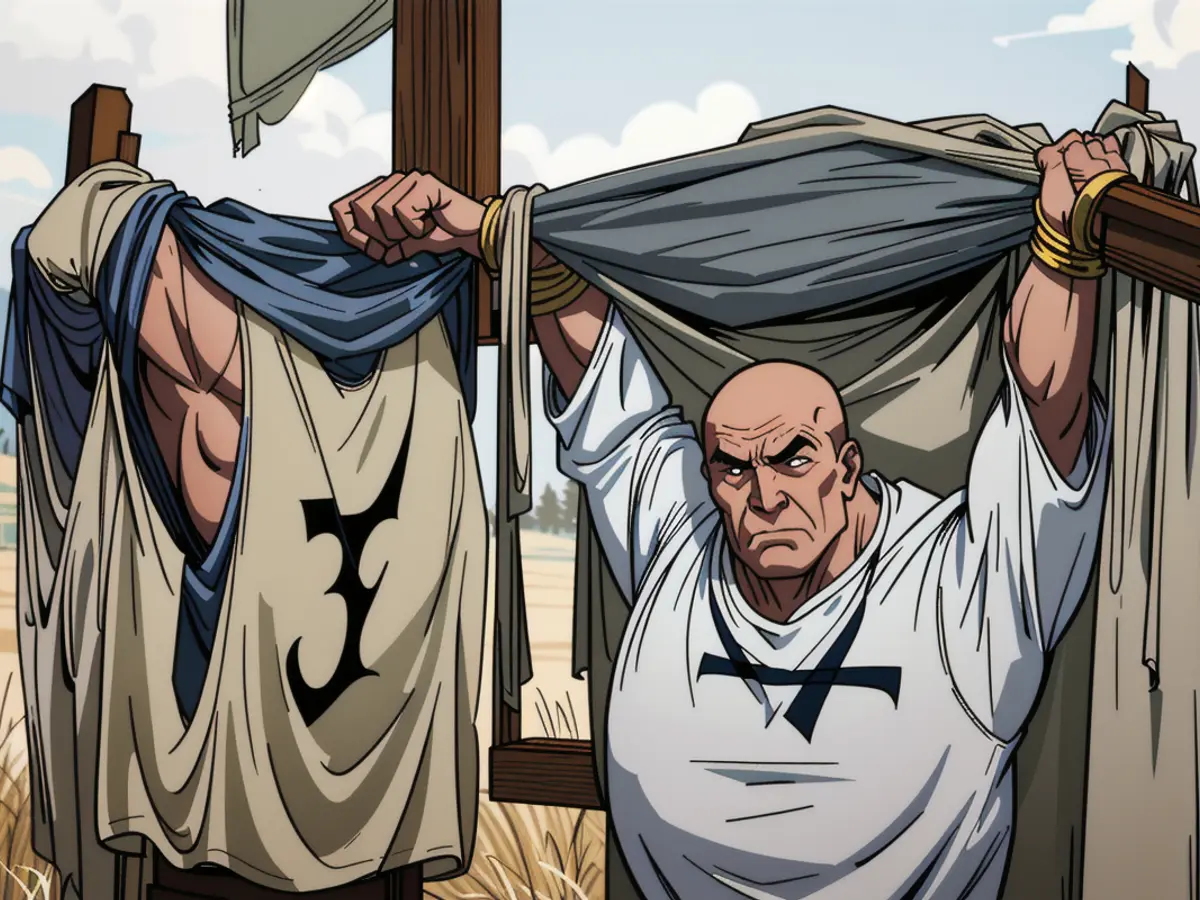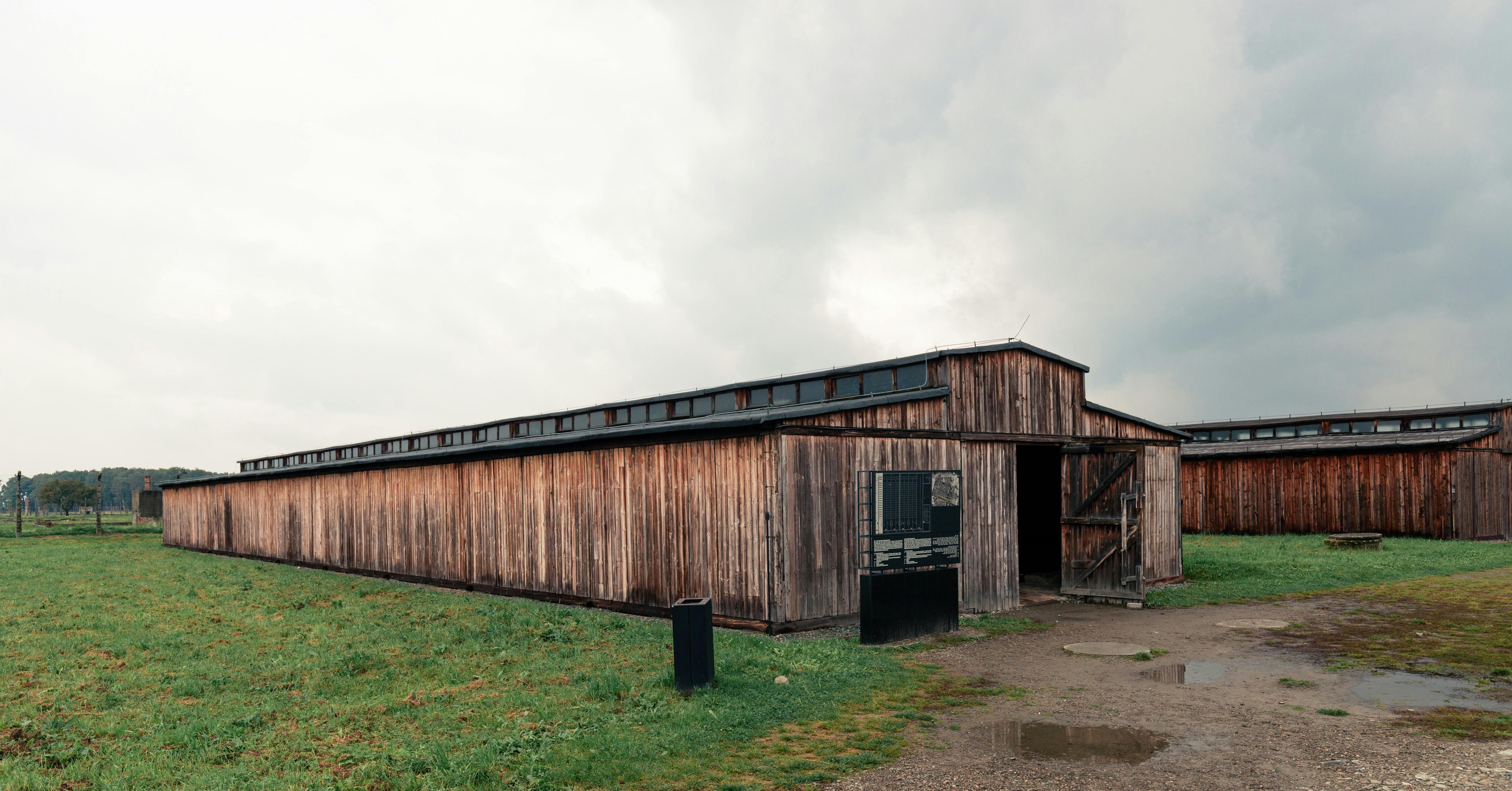A Memorial Event at Buchenwald Sparks Controversy, 80 Years Later
- 1 min read
Event closure at Buchenwald concentration camp marred by controversy - Disputes Arise at Buchenwald Concentration Camp Memorial Ceremony
A commemoration held at the Buchenwald Concentration Camp to honor the liberation of Buchenwald and Mittelbau-Dora camps came to a heated debate. A youth presented a project, labeling the present situation in Palestine as a "genocide," causing disapproval from some audience members, who responded with boos.
The director of the Buchenwald and Mittelbau-Dora Memorials Foundation, Jens-Christian Wagner, stepped in, stating the term was inappropriate, especially while mourning innocents at a place like Buchenwald. Israel's ambassador, Ron Prosor, was on hand for the wreath-laying ceremony. The youth had urged learning from Buchenwald and standing against today's injustices.
Reflecting on Buchenwald
Speaking earlier at the event, 92-year-old Naftali Fürst, a survivor of Auschwitz and Buchenwald concentration camps, addressed the audience. Fürst implored, "As few as we are, we will soon pass the torch of remembrance to you, carrying a historical responsibility." Nine concentration camp survivors were in attendance, according to the foundation.
Approximately 280,000 people were deported to Buchenwald from mid-1937, with around 56,000 meeting their end through murder, starvation, disease, forced labor, or medical experiments. US troops liberated the survivors in April 1945.
- Buchenwald
- Palestine
- Genocide
The roots of the discussion surrounding "genocide" in Palestine are deeply intertwined in the Israeli-Palestinian conflict's broader history. Here's an analysis of critical historical and contemporary factors:
Historical Context
- Nakba (1948): Calls for "genocide" frequently stem from the Nakba, which led to 750,000 Palestinians' displacement and the destruction of over 500 towns and settlements. This event laid the groundwork for ongoing conflict[1][5].
- Ongoing Displacement: The establishment of the Gaza Strip during the 1948 war, which housed over 250,000 displaced Palestinians, transformed it into a hub of resistance against Israeli policies[1].
- Ethnic Cleansing and Settler-Colonialism: The Zionist project is often seen as a form of ethnic cleansing, which has been a topic of ongoing academic and political debate[5].
Present Circumstances and Discussion
- Recent Violence and Blockades: The current Gaza war, which began in October 2023, has been marked by severe violence and limitless humanitarian crises, stemming from blockades. Rights organizations have accused Israel of committing war crimes and crimes against humanity, with some describing the actions as genocidal[2][4].
- "Genocide" Definition: The use of "genocide" is contentious, and opinions differ on its diction. Some argue Israel's actions in Gaza meet the criteria for genocide under international law[3][4]. Meanwhile, others contest this characterization.
- International Legal Perspective: The International Court of Justice (ICJ) and other bodies have looked into the situation, with the UN finding signs of war crimes and possible genocide. Despite these findings, Israel has refused to comply with international legal guidelines to prevent such atrocities[4].
- Palestinian Perspective: For many Palestinians, "genocide" reflects a long history of displacement, occupation, and violence that they perceive as systematic efforts to erase their identity[1][3].
Essence
The question of whether Israel's actions amount to genocide is multifaceted, encompassing legal, historical, and political aspects. Although some argue the scale of violence and displacement in Gaza fulfills the genocide criteria under international law, others question this categorization. The historical context, including the ongoing legacy of the Nakba, positions the current situation as part of a broader narrative of dispossession and resistance.
The youth's accusation of genocide in Palestine at the Buchenwald commemoration was met with controversy, stirring a debate that roots back to the historical context of the Nakba in 1948. Despite the ongoing debate, some argue that Israel's actions in Gaza, marked by recent violence and blockades, meet the criteria for genocide under international law. However, others question this characterization, emphasizing the complex nature of the Israeli-Palestinian conflict. The Commission has also taken a number of steps to improve the situation, but the term "genocide" remains contentious and polarizing.









